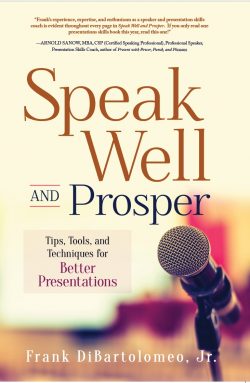Adapting Your Speaking to Different Audiences

Happy Mother’s Day to all the mothers out there. Thank you for all the hard work you have done raising your children. Job well done!
“The measure of intelligence is the ability to change.”
– Albert Einstein, Theoretical PhysicistDo you know people who you can talk to easily and people to which you find it hard to speak? That’s because they have different personalities. You mesh with one personality and not the other.
You may find it easy or hard to talk to different audiences as a speaker.
Well, your audience has a personality also. So, as a speaker, you need to determine your audience’s personality and adapt to it.
Below are three suggestions for doing this:
Understand Your Audience
Speakers should research and understand their audience before giving a speech or presentation. This includes their age, cultural background, education level, and interests. Knowing these factors can help the speaker tailor their content and delivery to appeal to the audience.
So, how do you find this information? One way is to talk to the event planner.
The event planner can supply you with your audience’s age, cultural background, education level, and interests. They can also provide information on the industry or company journals and books your audience reads. You need to seek this information well ahead of your presentation so you can review these journals and books.
The preceding information will put you in good stead in knowing your audience. However, there is another method to determining your audience’s personality that is the most valuable of all.
The most valuable method of understanding your audience is hearing the wants and needs first-hand from the audience members.
Always arrive at the venue for your presentation at least an hour before the beginning. Why? So you can greet your audience members as they come through the door.
Ask audience members why they came to hear you speak. Next, ask them what questions they want answered in your presentation. Finally, ask them what should happen in your presentation for them to feel their time was well spent.
Talking to audience members before your presentation is like mining in a vein of pure gold. You will not get more accurate information on your audience’s wants and needs.
You can use this information from audience members to de-emphasize what they didn’t tell you and emphasize what they did tell you. In other words, adapt your presentation to your audience.
However, it is not enough to understand your audience’s wants and needs. You have to be able to adjust your language and tone to fit your audience.
Adjust Your Language and Tone to Fit Your Audience
Speakers should adjust their language and tone to suit their audience.
For example, if the audience comprises professionals in a specific industry, the speaker may want to use technical language and a more formal tone. Conversely, if the audience consists of children or a non-technical group, the speaker should use more straightforward language and a more conversational tone.
It’s also easy for some speakers to fall into the trap of thinking, “they are the smartest person in the room.” Don’t go here. You will end up talking down to your audience. It is a surefire way to turn your audience against you. Once they are against you, turning them around is next to impossible.
Adjust the pace of your speaking also. You may have to take out some material and bring the tenor of your presentation up a level or two.
The key is to ensure your advertisements for your presentation are truthful and give a good indication of the depth of your presentation. Then let people decide whether they should attend your presentation or not.
So, now you know, adapting to your audience includes understanding their wants and needs and adjusting your language and tone to fit your audience.
It also includes using relevant examples and stories.
Use Relevant Examples and Stories
Speakers can engage their audience using examples and stories relevant to their interests and experiences. This can help make the content more relatable and memorable.
For example, suppose the speaker is addressing a group of college students. In that case, the speaker may want to use examples that relate to their experiences as students, such as studying for exams or navigating student loans.
Stories are also powerful. However, they need to be relevant and support the point you are saying at the time. Personal stories are the best.
If you tell a personal story, tell it like you are in the story. The audience will remember a story more if there is an emotional attachment to it. Oprah Winfrey once said, “Your audience may not remember what you say, but they will never forget how you made them feel.
If you are talking to new employees, you should use examples and stories from your days as a new employee.
Likewise, for mid-career employees, use examples of when you were a mid-career employee if you have passed that career phase.
The critical point is, again, to make your stories and examples relevant to your presentation points.
You will no doubt have to adapt your presentations to your audiences. The key is to plan for this.
Three ways to plan for this are (1) understanding your audience’s wants and needs, (2) adjusting your language and tone to fit your audience, and (3) using relevant examples and stories.
When I was in the Air Force, we had a saying, “Flexibility is the key to airpower.”
For you as a speaker, this turns into “Adaptability is the key to speaking power.”
Adapt and survive!
Call to Action
Don’t attempt to deliver a presentation without first understanding your audience
Use the language of your audience to raise the chance your presentation will be successful
Use powerful examples and stories to emphasize your presentation points
“All failure is failure to adapt. All success is successful adaptation.”
– Max McKeown, English writer, consultant, and researcherFrank DiBartolomeo is a retired U.S. Air Force Lieutenant Colonel and award-winning speaker, presentation and interview skills coach, and Professional Member of the National Speakers Association. He was awarded Toastmasters International’s highest individual award, Distinguished Toastmaster because of his outstanding work in public speaking and leadership.
Frank formed DiBartolomeo Consulting International (DCI), LLC (www.speakleadandsucceed.com) in 2007. The mission of DCI is to help technical professionals to inspire, motivate, and influence their colleagues and other technical professionals by improving their presentation skills, communication, and personal presence. Reach Frank at frank@speakleadandsucceed.com and (703) 509-4424.
Don’t miss Frank DiBartolomeo’s latest book!
“Speak Well and Prosper: Tips, Tools, and Techniques for Better Presentations”

Available now at Amazon.com and BarnesandNoble.com
